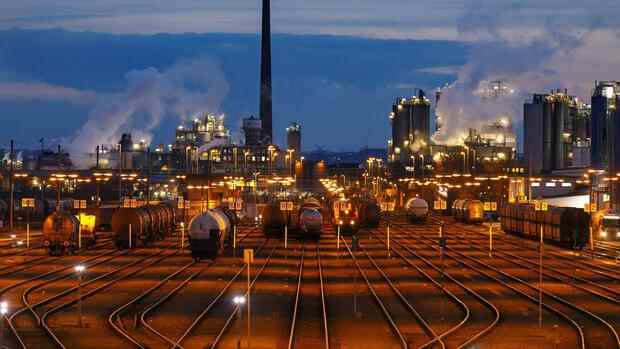Significance for the economy and society counts.
(Photo: imago images/Future Image)
Brussels The EU Commission establishes criteria that can be used in an emergency to decide which companies will no longer be supplied with gas. So far, there has only been a rough distinction between protected and non-protected consumers, with private households and vital infrastructure being protected consumers, but most industrial companies not.
Now the EU Commission is preparing for a situation in which it is clear that some companies need to be taken offline to reduce the risk of an uncontrolled failure.
Commission Vice President Frans Timmermans wants to present the plan next Wednesday. Then it could happen very quickly: A new stage of crisis response would be initiated on that very Wednesday, according to the draft for Timmermans’ paper, which is available to the Handelsblatt. The stage provides for a “coordinated pre-emergency demand reduction.”
According to four criteria, the EU states should then decide which consumers will be taken off the grid: social impact, cross-border supply chains, possible replacement for gas and damage to the production facilities.
Top jobs of the day
Find the best jobs now and
be notified by email.
In contrast to corresponding papers by the federal government, the Commission’s communication also gives examples of sectors in which a shutdown would have an unreasonably severe impact:
- The areas of health, environment, safety and the production of food and refined products are mentioned as sectors in which a production interruption would have societal effects. The treatment of waste and water as well as certain aspects of chemical plants are also considered to be relevant to safety.
- The supply chains for these important areas could be disrupted if there are problems in the medical device and pharmaceutical industries, in parts of the chemical industry and in parts of the textile industry, whose products are used in the health and defense industries. Reference is also made to the basic chemical industry and glass production, which is important for food and drug packaging, as well as for syringes, photovoltaics, wind energy and energy-saving applications.
- Without gas, other sectors could suffer a lot because production facilities would be destroyed. Mentioned are biological medicine and other parts of the medical industry, some parts of mechanical engineering, the textile industry and especially its finishing sector, pharmacy, most chemical processes, fertilizers, glass, steel, aluminium, refineries, lime and ceramics. In these cases, the Commission requires that it be determined how much gas is sufficient to protect the production facilities.
Commission recommendations are not legally binding
The Commission, on the other hand, sees cement works as an uncritical opportunity for savings. Most plants use coal or waste as an energy source, gas is the exception. Therefore, if the sector stops receiving gas, much of the production will remain unaffected.
>> Read here: According to these six criteria, the gas is shut off for companies
The Commission’s recommendations are not legally binding. However, not following them could have negative consequences. If a situation arises where a country runs out of gas and is dependent on supplies from other countries, how much effort the country has previously made to conserve gas will be decisive. If the Commission’s recommendations are not heeded, other countries should be relieved of their duty of solidarity.
Basic chemistry and the expansion of renewable energies should not be disrupted in the event of a gas shortage.
(Photo: dpa)
That’s why there could soon be auctions where companies can be compensated for savings. States would offer an amount of money and companies would state how much gas they are willing to save for that amount. In this way, those savings potentials that cause the least economic damage could be found.
Appeal to private households to save energy
The Commission recommends introducing such auctions quickly, ideally across national borders.
Acting now would reduce the impact of a supply disruption by a third, the paper says: “The Commission’s analysis shows that it would be significantly more cost-effective to moderately reduce natural gas demand over a longer period of time and to start earlier than the Suddenly and drastically reducing demand without proper preparation.”
The Commission also wants to reduce consumption in private households. Coercion is hardly possible because it is not possible to check whether apartments are heated sparingly.
Instead, the officials in Brussels are relying on a role model effect: They want to order that public buildings can only be heated up to 19 degrees. Private individuals could then also take this as a point of reference. The 19 is still in square brackets in the draft. Typically, values are marked that still have to be discussed internally before the paper is approved.
The debate about savings in private households should therefore continue to gain momentum in Germany. Economics Minister Robert Habeck said on Tuesday that it was also a question of how private customers could make a contribution to saving gas and had been sharply criticized for this.
The CSU MEP Markus Ferber is still not convinced by the EU Commission’s considerations: “In order to come to the conclusion that you can turn down the heating and should rely on other energy sources, you don’t need a communication from the Commission,” he said.
More: Everyone is their own neighbor: the EU countries have no plans for the gas emergency
